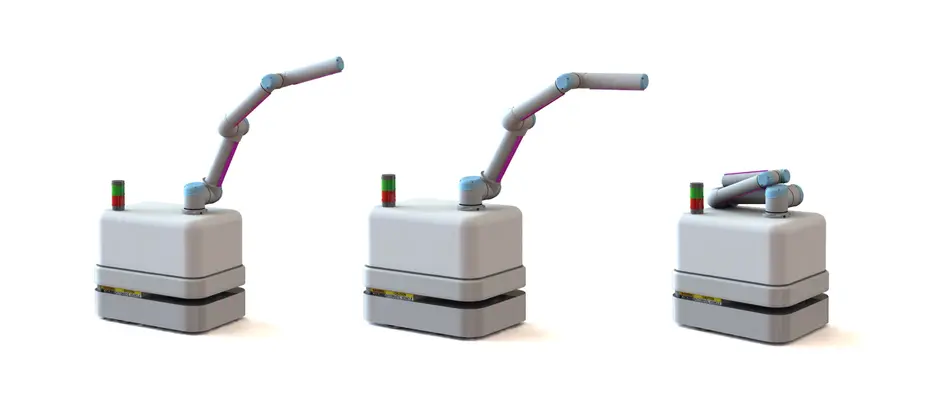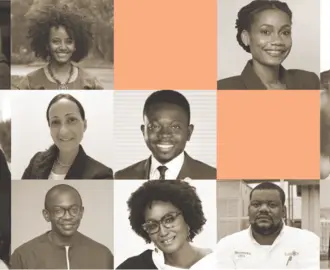Entrepreneurship
motorCortex.ai wins first ever MIT $50K Collaborative Intelligence Competition
Winning team’s autonomous robots disinfect high-traffic spaces
Cambridge, MA, June 2, 2020 — motorCortex.ai, developer of autonomous ground robots that safely disinfect high-traffic spaces, beat out seven other finalists to win the inaugural $50K Collaborative Intelligence Competition.
Launched by MIT last fall, the $50K Collaborative Intelligence Competition is part of a larger educational program conceived by MIT’s School of Engineering Dean Anantha Chandrakasan, which was then developed and run through the combined efforts of the MIT Interactive Robotics Group and the Martin Trust Center for MIT Entrepreneurship. The initiative is committed to advancing the development of artificial intelligence (AI) to complement, collaborate with, and augment humans versus replacing them with a special focus on accelerating the development of entrepreneurs and new, entrepreneurial ventures that leverage AI for the good of society in ethical ways. This mission is fully aligned with a new, cross-cutting area of the MIT Schwarzman College of Computing, the Social and Ethical Responsibilities of Computing (SERC), which aims to facilitate the development of responsible “habits of mind and action” for those who create and deploy computing technologies, and the creation of technologies in the public interest.
As COVID-19 necessitates the frequent disinfection of public spaces, motorCortex.ai’s offering addresses companies’ multiple cleaning challenges. Manual application of sprayed disinfectants requires careful attention to ensure the correct ‘soak time’ to neutralize pathogens, and disinfectant toxicity raises safety concerns for the custodian due to frequent exposure. Additionally, companies are struggling to find and train sufficient staff to perform this critical function due to an increase in the sanitization frequency. motorCortex.ai’s autonomous disinfection robots work collaboratively with cleaning staff to address these challenges. These robots perform the task of spraying disinfectant at consistent rates and speeds, enabling human cleaners to focus on manually scrubbing biofilms and residues. The robots also disinfect surfaces with UV-C light, and are equipped with sensors to identify humans in its proximity while maintaining a correct distance for safe application. Performance information is logged in a database, enabling facility managers to track disinfection cycles and visualize disinfection quality.
motorCortex.ai is led by Merritt Jenkins, CEO, MIT Sloan MBA 2021. Jenkins is an expert in computer vision and robot manipulation in agricultural environments. He previously led a robotics team at Plenty, a Softbank-backed indoor lettuce company. He holds an MS in Robotics from Carnegie Mellon University.
“The competition was a catalyst to again get to the core of what makes MIT so special,” says MIT School of Engineering Dean Chandrakasan. “It created a platform and a series of programs that leveraged resources and crossed disciplines, all with the goal of advancing knowledge, educating students, and serving society. AI and computational technologies will be a transformative force in our society for the next decade, and we look forward to cultivating its positive impact through initiatives such as the Collaborative Intelligence Competition.”
The competition was made possible through the generous sponsorship of Two Sigma, Schmidt Futures, and The Tang Family Catalyst Fund.
More than 30 teams with over 130 students participated. In addition to the $50K grand prize finale, the competition included multiple interim showcase events where teams competed for milestone awards. Twenty teams received $1K prizes, and five teams were awarded $5K prizes. Altogether, $95K in non-dilutive, equity-free prize funding was awarded to help accelerate these new ventures.
To provide student teams with a rigorous educational experience, the competition was constructed as a part of a larger comprehensive program to provide students with a “place to go” with their ideas (i.e., a community), supply teams with dedicated resources, refine innovations with commercial potential, and nurture a cross-disciplinary culture across MIT. In addition, Professors Julie Shah, associate dean of SERC and head of the Interactive Robotics Lab, and Bill Aulet, managing director of the Martin Trust Center, led a for credit course called “Collaborative Ventures.” The fall semester course provided guidance on how to develop new ventures that leverage AI and computational technologies in a technically feasible, commercially viable, and socially and ethically responsible manner and led right into the competition.
“The first year of anything is always a challenge, but I was extremely pleased with the results,” Professor Shah said regarding the competition. “The way to ensure a positive future is to invent and make it happen. That is what this competition was all about; creating those leaders who can understand the technology, the business, and the social implications to ensure the power of AI is utilized for good in the future. Our winning team and the seven other finalist teams represent this new generation of leaders.”
The other finalists in the MIT $50K Collaborative Intelligence Entrepreneurship Competition included:
- Encora Therapeutics is creating low-cost, non-invasive, wearable devices that use vibrations to mitigate the symptoms of neurological movement disorders, such as tremor, empowering those afflicted by such disorders to regain their confidence and their independence.
- Almond Finance is a mobile-based financial inclusion platform for entrepreneurs in the developing world. For two billion people worldwide, lack of access to financial services is one of the main obstacles to escaping poverty. By combining essential services like microlending and digital transactions into one platform, Almond Finance helps small business owners grow their businesses.
- Eleos Health improves workflow inefficiencies for behavioral health clinicians, enabling them to deliver quality, personalized behavioral care at scale. Utilizing voice analysis, Eleos’ software solution flags key clinical insights on an encounter-level basis to increase adherence to evidence-based practice and deliver superior treatment outcomes.
- Fuente enables city policy makers to collect and analyze data to make informed development decisions and respond to evolving situations. From maintenance records to land use maps, cities need access to up-to-date records. Fuente is replacing the time-consuming current offerings of pen and paper, and poorly structured data forms with an integrated software solution that collects and analyzes data three times faster than current methods.
- NOMA is a conversational interface that allows people with visual impairment to interact seamlessly with the physical devices they already own, such as appliances in the kitchen or printers at work. NOMA eliminates the need to buy expensive assistive devices and promotes industry-wide inclusive design by collaborating with manufacturers.
- SensorTensor is an autonomous voice-as-a-feature platform for the Internet of Things. SensorTensor’s design guarantees reliable protection of end-user privacy and security, making it an ideal choice for healthcare applications, smart home automation, robotics, and wearables.
- Human Dynamics is leveraging robotics capabilities to create a safer work environment, specifically for professions that require performing tasks at heights. Human Dynamics has developed a patent-pending drone attachment system that enables operators to perform maintenance and construction tasks from the safety of the ground. Today, drones are primarily used for inspection, but, with Human Dynamics, users can immediately fix problems found during inspections without the need for safety risks to workers or costly heavy machinery.
The MIT student leaders who organized and ran the competition are co-managing directors Josh Creamer MS ’20, PhD candidate, Human-Centered Artificial Intelligence, Human-Machine Collaboration, and Jegadeesh Sithamparathas MBA ’20.




